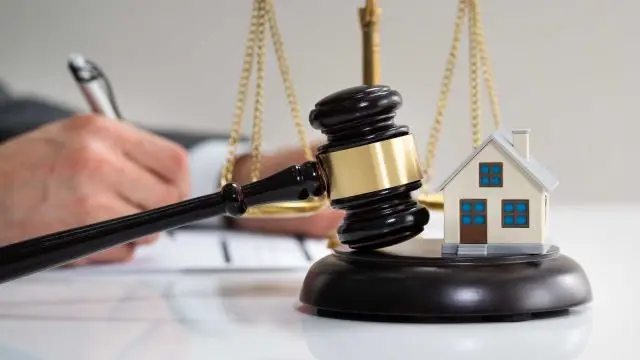In the rapidly changing world of property management, legal standards must always be followed. To ensure that owners and managers get the most out of their investments, they must understand and comply with the law. The purpose of this article is to help landlords understand the complex legal rules so that their businesses can operate smoothly and legally. This not only protects their interests but also ensures that everyone can have a better rental experience.
Adhere to the Rental Agreement
The rental transaction is the most important part of the management of a real estate object. The first step to complying is to draw up a detailed lease agreement that complies with the laws of the area. Relations between landlords and tenants will be strong if important issues such as rental amounts, who is responsible for repairs, and how to evict tenants are handled in a legally compliant manner.
Fair Housing Act
Complying with fair housing rules is an important legal part of property management. Property managers must be aware of federal and state laws that make it illegal to treat people differently because of race, color, sex, gender, disability, familial status, or national origin. Ensuring that policies that support equal opportunity and end discriminatory practices are not only the law but the right thing to do.
Property Maintenance and Safety Standards
Landlords must follow maintenance and safety rules to protect tenants’ health and avoid prosecution. A safe and livable place is one where regular inspections are carried out, maintenance issues are resolved quickly and safety rules are adhered to. To avoid legal issues, property managers should stay up to date on the latest regulations governing these matters in their area.
Evict Someone from Their Home
If eviction is necessary due to serious circumstances, property managers must strictly follow the law. To avoid legal problems, it is important to understand eviction laws, keep good records, and meet deadlines. Understanding the legal grounds for eviction (such as non-payment of rent or violation of lease rules) is important for a legal and defensible eviction proceeding.
Your Rights and Privacy as a Tenant
Another legal issue property managers must consider is protecting the privacy rights of tenants. Property managers need to understand what rules are allowed in a rental unit, how tenant information is processed, and how security deposits are handled. By being open and honest with your tenants and communicating regularly, you will build a good relationship and ensure that legal requirements are met.
Risk Reduction Strategies
Property managers must not only understand and comply with current laws but also employ effective risk-reduction strategies. This includes getting full coverage to protect against things like natural disasters, property damage, and liability claims that you can’t prepare for. Through regular risk assessment and vigilance, more can be done to reduce the risk of legal problems.
Keep Records of Transactions and Conversations
A basic rule of property management is to keep accurate records of all conversations and transactions. Keeping complete records of your lease, repairs, and interactions with tenants can be extremely helpful if you need to use them in court. Having the right paperwork not only shows that you are following the law but also makes things more open and accountable.
Continuing Education and Legal Updates
Laws regarding ownership can change at any time. To stay abreast of new laws, regulations, and industry best practices, property managers must take the time to engage in ongoing education. Professional development activities such as attending legal seminars and networking with other property managers can help them gain new knowledge and stay compliant.
Work with Legal Experts
When you are dealing with complex legal issues, it is wise to seek help and advice from a lawyer. Building a relationship with an experienced real estate attorney can provide property managers with a reliable source of legal advice. If you want to avoid legal problems when writing a lease or dealing with a difficult situation, it is best to consult an attorney.
Community Engagement and Advocacy
By being active in the local community and joining professional organizations, property managers can understand the specific laws that apply in their area. Professionals in support groups can also stay abreast of legal changes that could impact the way property managers do their work. This not only increases compliance but also makes the property manager look like a responsible, knowledgeable leader in their field.
Conclusion
In general, being a good property manager involves many different tasks that go beyond the daily duties of keeping a property in good condition and dealing with tenant issues. To meet legal standards, you must be proactive and well-informed. This includes reducing risk, keeping records, continuing to learn, working with advocates, and participating in the community. By using these strategies, property managers can not only ensure compliance with the rules but also create a positive legal environment for landlords and tenants.
FAQs
1. What are the most important parts of a property management lease?
A solid lease agreement should include important details such as the rental amount, who is responsible for repairs, and how to break the lease. It is important to ensure that the transaction complies with the rules and laws of the area.
2. What are fair housing rules? What impact do they have on property managers?
Fair housing rules state that people cannot be turned away because of race, color, religion, sex, disability, familial status, or national origin. Property managers must follow these rules to ensure that all tenants have the same opportunities and to avoid violating the law.
3. How do property managers ensure that safety and maintenance rules are adhered to?
Safety rules must be adhered to, regular inspections must be carried out and maintenance issues must be resolved quickly. Legal issues can be avoided by staying abreast of local regulations regarding property maintenance.
4. What is the right reason to evict someone from their home? How should property managers deal with this?
Failure to pay rent or violating rental rules are valid reasons for evicting someone. Property managers must strictly adhere to the law, keep detailed records of the process, and adhere to the deadlines set out in the Relocation Act.
5. How do property managers protect tenant privacy?
Property managers need to know the rules for breaking into rental units, handling tenant information, and handling security deposits. By being open and honest with your tenants and communicating clearly with them, you can build good relationships and comply with the law.
6. What methods can property managers use to reduce risk?
Property managers must obtain fully insured insurance to protect themselves against natural disasters, property damage, and lawsuits. By carrying out regular risk assessments and taking strategic steps, more legal problems can be avoided.



